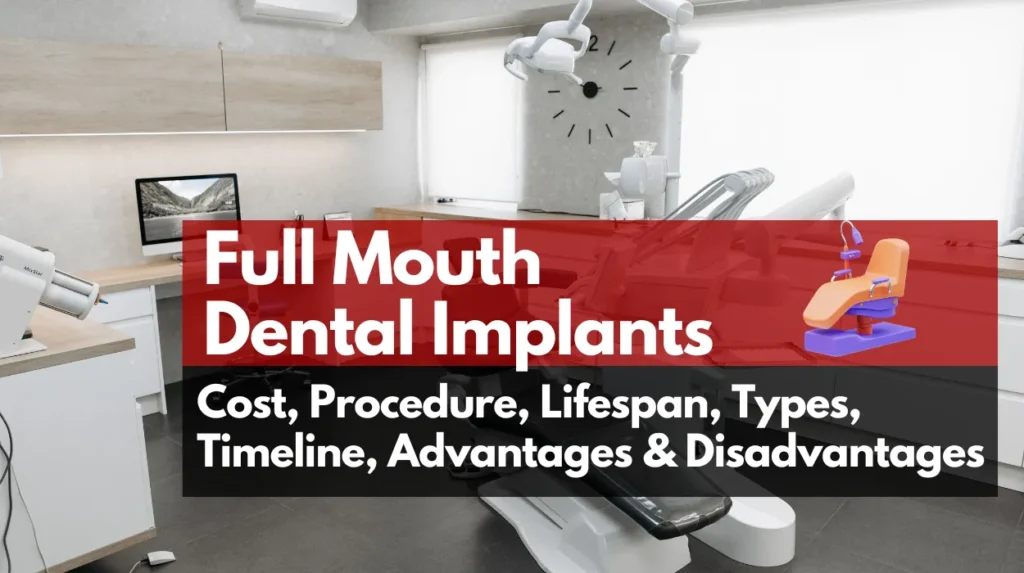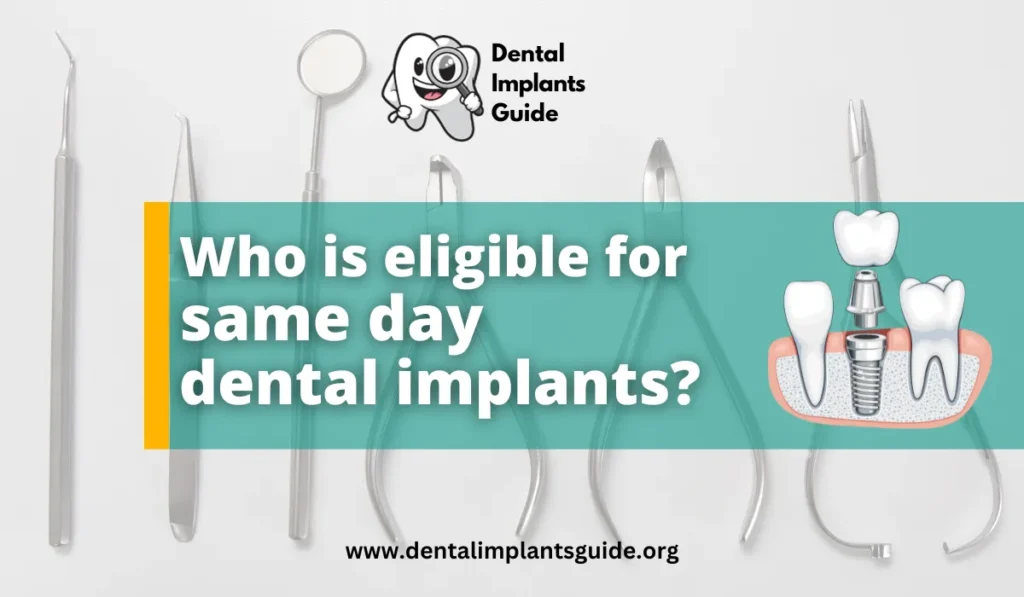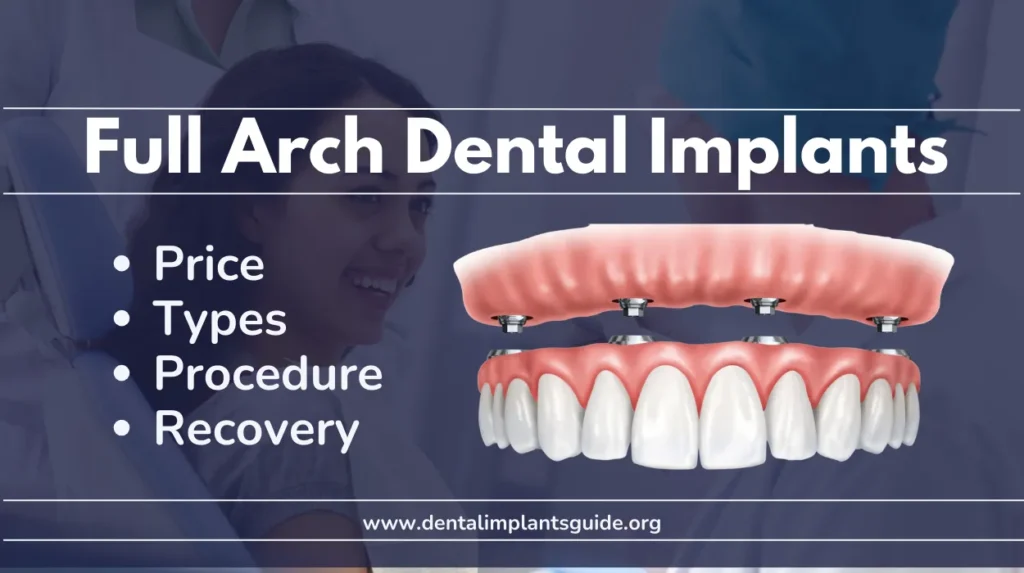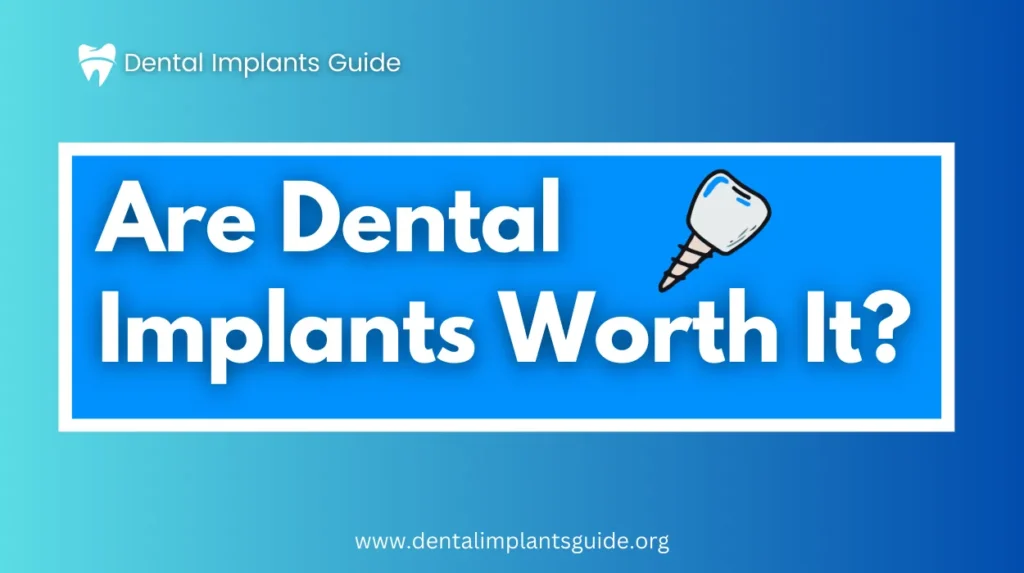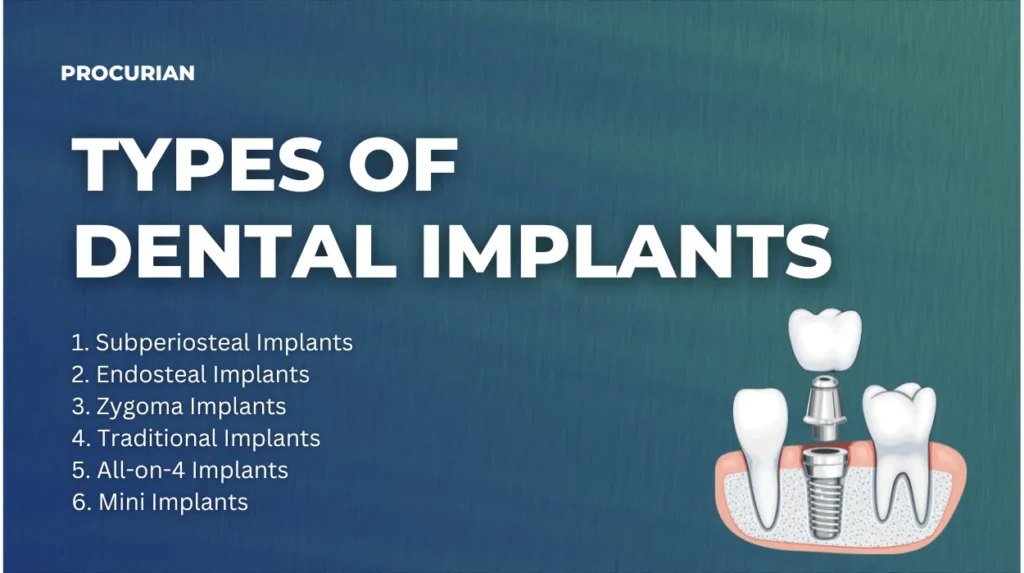Good day! You might be wondering, “Do dental implants hurt?” if you’re considering getting them. I’m here to give you a straightforward explanation, though.

Although they may seem frightening, dental implants are not as painful as you might imagine.
We’ll cover everything you need to know about the procedure in this article, from beginning to end, so you can decide with confidence.
What Are Dental Implants?
Dental implant is a popular and effective way to replace missing teeth. In basic terms, they are titanium-based biocompatible artificial tooth roots. These implants are surgically placed into your jawbone to act as a solid base for dentures, bridges, or other replacement teeth. There are different types of Dental implants available for different needs.
The Dental Implant Process
Getting dental implants is a multi-step process that typically involves the following stages:
| Stages | Description |
|---|---|
| 1. Consultation | Your dentist evaluates your oral health |
| 2. Implant Placement | Surgical placement of implant(s) |
| 3. Healing Period | Implants bond with the jawbone |
| 4. Abutment Placement | Connecting implants to replacement teeth |
| 5. Crown Placement | Attaching the custom-made tooth crown |
Do Dental Implants Hurt?
The worst part of getting a dental implant for some people is the discomfort and minor pain that can happen after the surgery.
It might feel sore, swollen, or a bit achy in your mouth for a few days. But, the good news is, this discomfort usually goes away with time and proper care.
Now, the big question: Do Dental Implants Hurt? Let’s break it down for you.
During the surgery
While the dental implant procedure itself is performed under local anesthesia, you may feel some pressure or vibrations during the surgery. However, you should not experience any pain.
After the surgery
In the hours immediately following the surgery, it’s common to experience some discomfort, swelling, and minor bleeding. This discomfort is usually manageable with over-the-counter pain relievers prescribed by your dentist.
Throughout the Healing Process
As your implant integrates with your jawbone, you may experience mild soreness or discomfort. This is a sign that the healing process is underway, but it’s not usually painful.
Note: Dental implant surgery is considered relatively painless by most patients. Any discomfort you may feel is typically well-managed with pain medication and diminishes as you heal.
How to Minimize Pain after Dental Implant Surgery?
To minimize any post-surgery discomfort, your dentist will likely prescribe pain medications or recommend over-the-counter pain relievers.
It’s very important to follow their instructions carefully. Here are some additional tips to manage pain effectively:
a. Take Prescribed Pain Medication – Your dentist may prescribe pain relievers to help you manage the pain. Follow their instructions carefully.
b. Use Ice Packs – Applying ice packs to your face for 20 minutes at a time can reduce swelling and ease pain.
c. Rest and Elevate Your Head – Resting and keeping your head elevated can also help reduce swelling.
d. Avoid Certain Foods – Stick to soft, easy-to-chew foods for the first few days to avoid aggravating the surgical site.
How Long Does the Pain Last?
The duration of pain after dental implant surgery varies from person to person. Generally, the most significant discomfort occurs during the first few days after the procedure. After that, it gradually subsides.
In most cases, you can expect:
- Mild to moderate pain for 2-3 days.
- Swelling for about a week.
- Complete healing and minimal discomfort within a few weeks.
Remember, everyone’s pain tolerance and healing process are different.
What to Eat After Dental Implant Surgery?
| Soft Foods to Eat | Foods to Avoid |
|---|---|
| Avocado | No Dairy prodcuts |
| Applesauce | Crunchy vegetables and fruits |
| Mashed potatoes | Nuts and seeds |
| Yogurt | Tough meats |
| Pudding | Spicy foods |
| Smoothies | Hot beverages |
| Scrambled eggs | Hard candies |
Get the deep information in detail about – What can you eat after dental implant surgery?
What are the side effects of a dental implant?
Getting a dental implant is generally safe, but like with anything, there can be some side effects. Here are some common side effects you might experience after getting a dental implant:
- Pain and Discomfort
- Swelling
- Bruising
- Bleeding
- Difficulty Eating
Read more in a detailed guide about 12 Possible Side Effects of Dental Implants.
What is the best pain relief after dental implants?
After getting dental implants, the best pain medicine to relieve any discomfort is usually over-the-counter pain relievers like ibuprofen or acetaminophen.
Make sure to follow your dentist’s advice and take the medicine as directed on the label.
Are dental implants expensive?
Yes, dental implants can be expensive. The cost of dental impants is more than some other tooth replacement options because they involve surgery and high-quality materials.
If you’re unable to afford dental implant surgery, consider exploring options like dental implant grants. These programs may provide financial assistance or discounts to help cover the cost of the procedure. Even if you didn’t get approved for the grants, here are some insurance that covers Dental implants.
Why does my dental implant hurt when i chew?
Your dental implant may hurt when you chew because it could be experiencing some stress or pressure during biting. This can happen if the implant hasn’t fully fused with your jawbone yet or if there’s an issue with the implant itself.
FAQs
How painful is it to get dental implants?
How long does the pain last after a dental implant?
What hurts more tooth extraction or implant?
Are you put to sleep for dental implants?
How long does a dental implant take?
Who should not get dental implants?
Final Words
You may experience some discomfort during the dental implant process, it’s generally not painful. Your dentist will take steps to minimize any pain, and the recovery period can be managed with proper care.
Keep in mind that dental implants are an excellent long-term option for replacing missing teeth, and the advantages frequently outweigh any brief discomfort.


